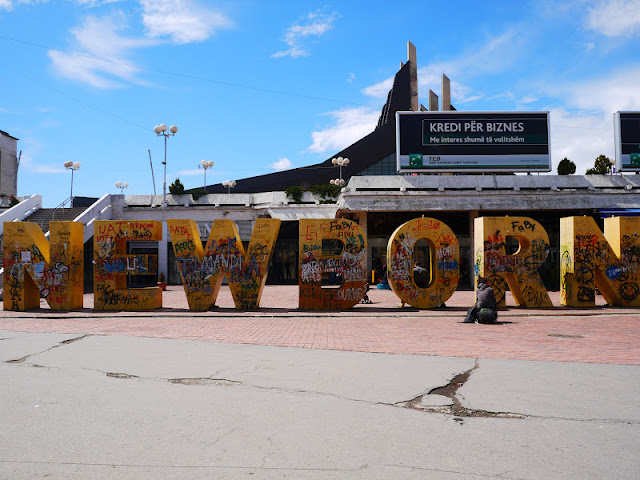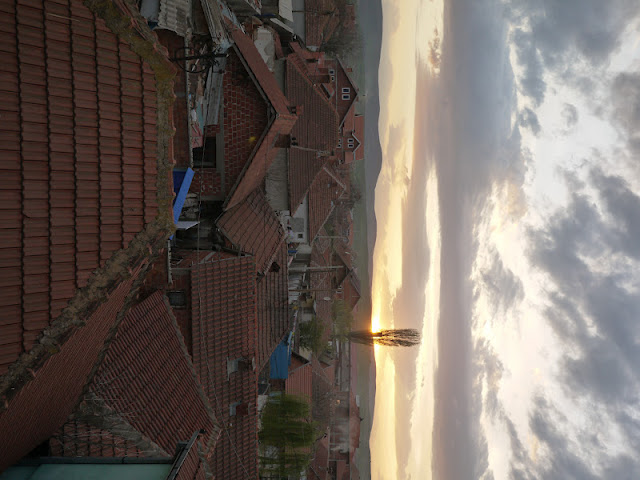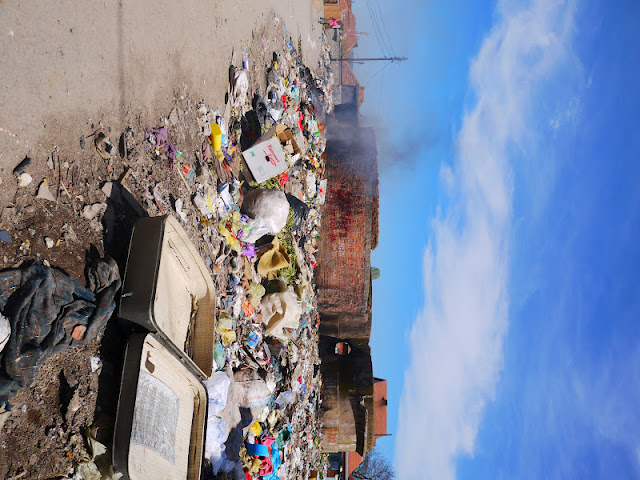As we prepared for our departure from Turkey, we had to quickly scramble to change our plans when we learned that for almost a year the train route from Istanbul to Budapest had been discontinued ...We also learned that most bus routes from Istanbul go directly into the former Yugoslovia. So...a day later we found ourselves in Pristina, Kosovo. As generation Y'ers (admittedly a bit naive) our idea of visiting Kosovo was synonymous with heading into an active war zone. The trip began dubiously enough when - in hot pursuit for bus tickets out of Istanbul, we were guided by a concierge (a concierge at a hotel where we were not actually patrons) to a "Mr. Vebby behind the bus station." Fortunately, after exercising some flexibility, we ended up with tickets for two middle seats on a bus bound for Kosovo. Despite our unfounded assumptions, we quickly learned that this beautiful country is much more than the 1999 war, that -for us, largely defined it. Although there is still conflict in Kosovo, for the most part the violence has stopped and the conflict is isolated mostly to the northern border with Serbia. However, the results of the conflict (persistent poverty and discrimination on both sides) remain.
In one of those strange and useful coincidences, before leaving Istanbul we caught a report by Al Jazeera entitled "African Aid: Helpful or Hazardous?" The piece focused on businesses like TOMS shoes and organizations that provide clothing donations to Africa. Despite good intentions, a recent study has shown that such donations have lead to a 40% reduction in Africa's clothing production domestically. Additionally, and perhaps more detrimentally, some critics have concluded that such donations (and aid in general) have taken the pressure off the government to remain accountable to its citizens and instead promotes the government and citizens to rely on foreign intervention. To conclude, the report focuses on direct investment and micro credit loans as a more meaningful alternative. For a more in-depth look please check out the full report from Al Jazeera. This report was particularly interesting to us as we entered Kosovo - a country run almost entirely by international aid agencies, governing bodies and foreign military. In fact, 98% of Kosovo's GDP comes from outside aid and remittances.
In the photos below we highlight one particular organization that moves beyond donations to direct investment in a the community of Fushe Kosove. Families in Fushe Kosove, on average, live on less than 60 Euros a month (less than 9 Euros/Person). Begging and rummaging through trash for scrap metal are the only methods of income outside of social welfare.
The Newborn sign is one of the most recognizable landmarks in the capitol city of Pristina. It was erected after independence was declared in 2008. Residents are encouraged to "make their mark" on the sign...
This train station, lying just outside the village of Fushe Kosove, was used to drive ethnic Albanians out of Kosovo during the "ethnic cleansing" operation by the Serbs in 1999. Although the train station now operates for tourism and domestic travel purposes, it is still largely synonymous with the genocide
Fushe Kosove, Kosovo
Fushe Kosove, Kosovo
Fushe Kosove, Kosovo
Fushe Kosove, Kosovo
Fushe Kosove, Kosovo
Fushe Kosove, Kosovo
This young girl is prohibited from attending public school in Kosovo because of a law that prevents women from wearing veils in school. Unlike the law in France, this law does not prevent all shows of religious affiliation (e.g. crucifix necklaces, yamakas), it only prevents shows of muslim affiliation. Because her family makes less than 60 Euros a month, she cannot afford to attend a private school and currently relies entirely on a small NGO (The Ideas Partnership) to receive an education.
It costs 4 euros for a small trash can to be transported fromthe village of Fushe Kosove to a landfill outside the capitol city of Pristina (only 5km away). Since most residents of Fushe Kosove live on less than 60 Euros a month, most of the trash is deposited in two large landfills in the middle of the village.
In the part of Fushë Kosovë where The Ideas Partnership has been working, the vast majority of earnings come from the women begging and the men going through the city's rubbish bins for re-sellable scrap. Children often have to work with their parents. This basic need for money to get food is one of the reasons that the school enrollment rates have been very low.
A few minutes after we took this picture, this dog was picked up by one of the women in the village and killed. As a huge dog lover and animal rights supporter I was horrified. I was equally horrified by the survival circumstances that would make a person think killing this dog was the right thing to do. He actions were not right, but being forced by economic circumstances to live with your children in a landfill, competing with dogs for food, isn't right either.
The Sa-Punë micro-finance soap-making project is one way that women in Fushe Kosove are trying to end the cycle of poverty. All of the women who hand-make these scented olive oil soaps have children who started school this year. With a bit of training, they can see their hard work translating directly into earnings: they're less likely to be out begging and less likely to be taking their children out of school.
In addition to organizing micro credit loan projects and educational opportunities, the Ideas Partnership takes donations of clothes and shoes to distribute to the families in Fushe Kosove. There seems to be a distinct difference between the way in which Ideas Partnership distributes donations compared to other such organizations, critiqued by Al Jazeera. In Kosovo if a child comes to school without proper footwear, clothing, or hygiene, that child is immediately sent home. Since the creation of The Ideas Partnership, families have a place to go to find immediate assistance and get their children back into the classroom.
On a personal note, we walked away from the Al Jazeera report wondering: before we donate clothes wouldn't it be wiser to sell these clothes to a store like Buffalo Exchange, take that money and donate it to an organization that makes micro credit loans to people living in poverty to assist them in starting their own businesses? Not sure, but worth pondering....















































